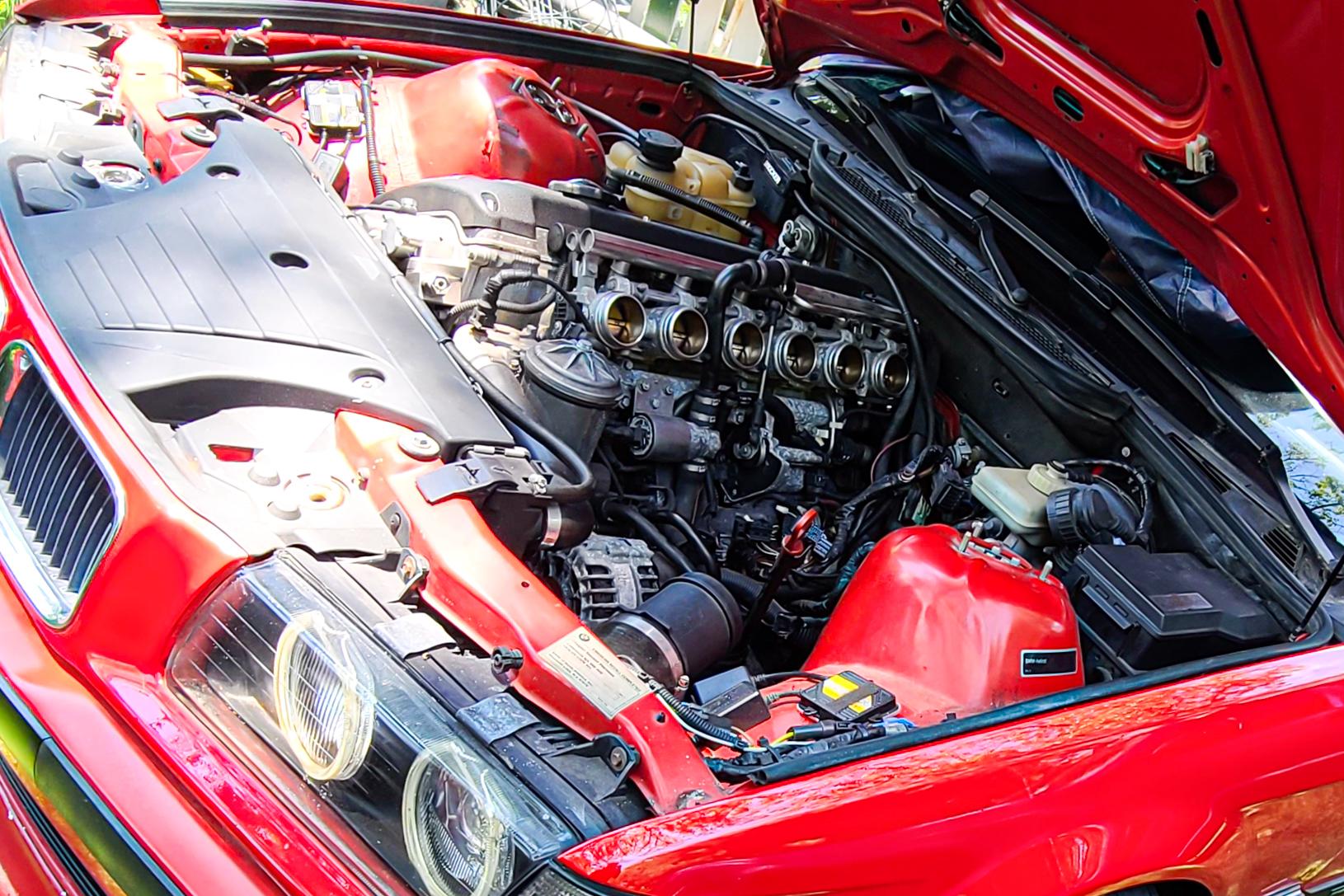BMW 318ti: A Comprehensive Overview to This Compact Giant
BMW 318ti: A Comprehensive Overview to This Compact Giant
Blog Article
Crucial Considerations for Selecting the very best Engine for Your Needs
In the world of choosing the optimal engine to meet your demands, several critical elements need precise factor to consider to guarantee optimum performance and effectiveness. From the nuanced equilibrium between power and efficiency to the often-overlooked aspects of maintenance and solution requirements, each aspect plays a pivotal function in determining the most suitable engine for your certain demands. As the complexity of engine modern technologies remains to advance, discerning one of the most fitting alternative requires a deep understanding of the interaction between numerous factors to consider. By checking out the elaborate web of aspects that underpin this decision-making process, a clearer course emerges towards choosing an engine that not just meets but surpasses your assumptions.
Power and Efficiency
When assessing engines for optimum efficiency, it is essential to prioritize both power output and efficiency. Power output measures the capacity of an engine to create power, which straight affects its performance. A high power output is vital for demanding jobs such as sturdy applications or high-speed needs. It guarantees that the engine can deal with the workload properly and successfully. Power alone is not enough; effectiveness plays a significant duty in figuring out the general efficiency of an engine. Effectiveness refers to just how well the engine transforms fuel right into functional energy. An extra effective engine will supply much better gas mileage, lower emissions, and lowered operating expense. Striking the right equilibrium between power result and effectiveness is vital to choosing an engine that meets your certain needs. When making this choice, it is important to take into consideration elements such as the planned use of the engine, ecological impact, and long-lasting price ramifications. By meticulously assessing both power and performance, you can select an engine that supplies optimal efficiency and fulfills your demands properly.
Gas Performance and Economy
Gas performance refers to the engine's capacity to transform fuel into energy with minimal waste, straight influencing operating prices and environmental sustainability. Engines with higher fuel efficiency not just minimize fuel costs but additionally decrease carbon exhausts, contributing to a greener operation.

Compatibility and Application
Taking into consideration the gas effectiveness and economy of an engine, the following vital element to address is its compatibility and application within specific operational contexts. Compatibility refers to just how see this site well the engine integrates with the total system or equipment it powers. It entails factors such as physical measurements, mounting choices, electric interfaces, and control systems. Making certain compatibility is necessary to prevent problems such as getting too hot, vibrations, or power discrepancies (bmw 318ti).
Additionally, the application of the engine is just as vital. Various engines are designed for particular objectives, whether it be industrial machinery, marine vessels, autos, or power generators. Understanding the intended application permits the option of an engine that can provide the needed power result, torque, and functional qualities. A high-revving engine developed for efficiency autos would certainly not be ideal for sturdy construction equipment that requires high torque at low rates.
Upkeep and Service Demands
Upkeep and solution requirements play a critical role in making sure the long life and ideal performance of an engine. Regular upkeep is vital to prevent failures, prolong the life-span of the engine, and maintain its efficiency. When selecting an engine, it is very important to take into consideration the manufacturer's recommended maintenance routine and the accessibility of solution facilities or certified technicians.
Factors such as the frequency of oil changes, filter replacements, and general evaluations this can dramatically influence the engine's performance. Some engines may need more regular maintenance based upon their layout and use, while others might have longer periods in between upkeep checks. It is vital to stick to these service needs to avoid pricey fixings and unanticipated downtime.

Cost and Spending Plan Considerations
Budget restraints frequently play a considerable function in the decision-making process when picking an engine for a specific application. When considering the expense and budget plan ramifications of selecting an engine, it is vital to evaluate not only the preliminary purchase cost yet also the lasting expenditures connected with upkeep, fuel intake, and potential upgrades or repair services. It is essential to strike an equilibrium in between the in advance price of the engine view it and its overall lifecycle expenses to make certain that the chosen engine stays financially sustainable throughout its functional lifespan.
Aspects such as fuel efficiency, reliability, and longevity can directly impact the complete expense of possession of an engine. While a much more expensive engine might have higher upfront expenses, it could possibly result in lower upkeep and gas expenditures over time, hence supplying much better value in the long run.
Verdict

Fuel efficiency refers to the engine's capability to transform fuel into power with marginal waste, directly affecting operating prices and environmental sustainability.Elements affecting gas efficiency include engine layout, combustion effectiveness, and total performance optimization. Additionally, choosing the ideal gas type and grade as suggested by the engine maker can better enhance efficiency and extend engine life expectancy.
Engines with excellent service features and conveniently offered components can reduce maintenance costs and reduce the time the engine is out of operation - bmw 318ti. It is critical to strike an equilibrium in between the ahead of time price of the engine and its overall lifecycle costs to guarantee that the chosen engine remains financially sustainable throughout its operational lifespan
Report this page